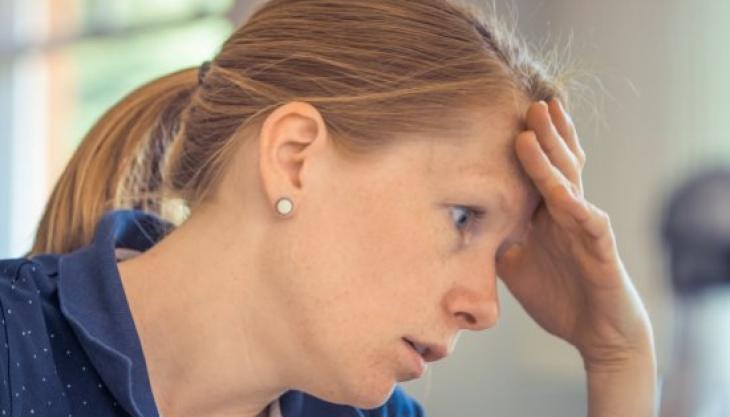Bankruptcy Student Loan Discharge – What You Should Know
Submitted by Rachel R on Fri, 10/05/2018 - 9:54am

Stressed about student loans
Image via Pixabay
Very few debts are ineligible for bankruptcy discharge. Among them are recent income taxes, alimony, child support, and student loans. Also, ineligible are debts taken fraudulently or via theft or other similar shady means. However, student loans weren’t always nondischargeable – so how and why did they get carved out of the federal debt relief mechanism?
Pre-1970s student loans were dischargeable
Before the 70s, you could discharge student loans in federal bankruptcy. But over the past half-century, it’s been a matter of Congress making it continually less easy to shed this debt. During the same era, student loan debt rose and reached epic proportions. It’s now at $1.53 trillion and continues to grow. Some of the changing provisions to note from the 70s through the 90s include:
- 1976 – Congress added to the federal code that the debtor must prove “undue hardship” for any student loan debts that were five years old or more recent.
- 1990 – Congress changed the period for the undue hardship standard for loans less than seven years old to be eligible for bankruptcy discharge.
- 1998 – Congress tweaked the law again to subject all federal student loans to the undue hardship standard for bankruptcy discharge.
Bankruptcy reform made student loan discharge tougher
The Bankruptcy Abuse Prevention and Consumer Protection Act of 2005 drastically changed the face of student loan discharge. They added private loans to the list of debts ineligible for bankruptcy discharge making it tougher for consumers drowning in student debt. Barring private student loans from discharge was an unconventional move.
The other types of debt carved out of bankruptcy have federal government backing such as income taxes and federal student loans. Understandably, bankruptcy relief excludes child support and alimony. But private student loans are much like other consumer debt like credit cards, personal loans, car loans, mortgages, etc. These all traditionally can be discharged and have a statute of limitations.
What is undue hardship?
Undue hardship is the standard for federal student loan discharge in bankruptcy. That’s in the federal code but nowhere in the law does it specify what that standard means or how you can prove it. At its core, the courts have interpreted the law to mean that if you repay your loans, your standard of living will be unreasonably low for yourself and your dependents.
Therefore, it would be a hardship to repay. For many years, the courts and student loan servicers pushed hard on troubled borrowers seeking debt relief in bankruptcy. They turned down those who were living in poverty, disabled, and stricken with chronic or fatal diseases. However, at the same time, 40% of those that asked for student loan relief in bankruptcy got it.
Things are changing for student loans in bankruptcy
Over the past year, things have finally begun to change for student loans and bankruptcy. The presidential administration is exploring options and considering whether to loosen standards. Right now, that is in the information gathering stage, but it's still in process. The courts are also finally turning a more sympathetic ear to embattled borrowers.
Increasingly, rulings are swinging the way of student loan borrowers struggling with their debt. If you can’t afford your loans and other debt is weighing you down, this can be an opportune time to seek bankruptcy relief for your college debt. You stand a better chance if you cannot get a job in your field of major, are disabled, older, or have a chronic illness. But anyone can try for relief.
How to ask for student loan discharge
When you file a bankruptcy case, your standard debts are all included. That means that if you owe medical bills, credit card debts, personal loans, and the like, that’s all part of the primary bankruptcy case. To seek student loan relief, you must ask your lawyer to file an Adversary Proceeding. It’s an additional filing that sues your loan servicer for the relief of your college debt.
It takes a little more effort, but it’s the only way to get the court to consider your request for student loan discharge in bankruptcy. Look for a North Carolina bankruptcy attorney experienced in Adversary Proceedings and talk to them about how to move forward with your case for student loan discharge.
Read reviews from our clients then contact the Law Offices of John T. Orcutt. Call +1-833-627-0115 to schedule a free student loan bankruptcy consultation at one of our locations in Raleigh, Durham, Fayetteville, Wilson, Greensboro or Wilmington.
Debts Hurt! Got debt? Need help? Get started below!
Serving All of North Carolina
- Bankruptcy Attorneys Raleigh NC (North)
- Bankruptcy Attorney Fayetteville NC
- Bankruptcy Attorney Durham NC
- Bankruptcy Attorneys Wilson NC
- Bankruptcy Attorneys Greensboro NC
- Bankruptcy Attorneys Southport NC
- Bankruptcy Attorneys Wilmington NC
Bankruptcy Attorneys Raleigh NC (North)
6616 Six Forks Rd #203 Raleigh, NC 27615 North Carolina
Tel: (919) 847-9750

Bankruptcy Attorney Fayetteville NC
2711 Breezewood Ave Fayetteville, NC 28303 North Carolina
Tel: (910) 323-2972

Bankruptcy Attorney Durham NC
1738 Hillandale Rd Suite D Durham, NC 27705 North Carolina
Tel: (919) 286-1695


Bankruptcy Attorneys Greensboro NC
2100 W Cornwallis Dr. STE O Greensboro, NC 27408 North Carolina
Tel: (336) 542-5993

Bankruptcy Attorneys Southport NC
116 N Howe St. Suite A Southport, NC 28461 North Carolina
Tel: (910) 218-8682

Bankruptcy Attorneys Wilmington NC
116 N. Howe Street, Suite A Southport, NC 28461 North Carolina
Tel: (910) 447-2987
